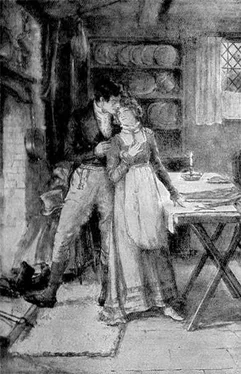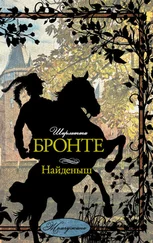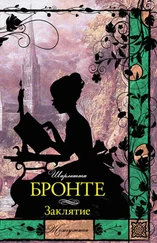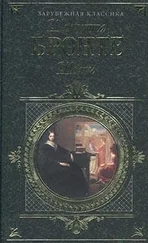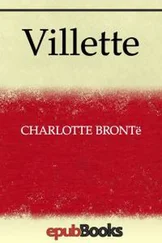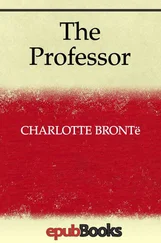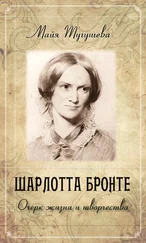Шарлотта Бронте - Shirley
Здесь есть возможность читать онлайн «Шарлотта Бронте - Shirley» весь текст электронной книги совершенно бесплатно (целиком полную версию без сокращений). В некоторых случаях можно слушать аудио, скачать через торрент в формате fb2 и присутствует краткое содержание. Год выпуска: 2014, Издательство: epubBooks Classics, Жанр: Классическая проза, на английском языке. Описание произведения, (предисловие) а так же отзывы посетителей доступны на портале библиотеки ЛибКат.
- Название:Shirley
- Автор:
- Издательство:epubBooks Classics
- Жанр:
- Год:2014
- ISBN:нет данных
- Рейтинг книги:3 / 5. Голосов: 1
-
Избранное:Добавить в избранное
- Отзывы:
-
Ваша оценка:
- 60
- 1
- 2
- 3
- 4
- 5
Shirley: краткое содержание, описание и аннотация
Предлагаем к чтению аннотацию, описание, краткое содержание или предисловие (зависит от того, что написал сам автор книги «Shirley»). Если вы не нашли необходимую информацию о книге — напишите в комментариях, мы постараемся отыскать её.
Shirley — читать онлайн бесплатно полную книгу (весь текст) целиком
Ниже представлен текст книги, разбитый по страницам. Система сохранения места последней прочитанной страницы, позволяет с удобством читать онлайн бесплатно книгу «Shirley», без необходимости каждый раз заново искать на чём Вы остановились. Поставьте закладку, и сможете в любой момент перейти на страницу, на которой закончили чтение.
Интервал:
Закладка:
"Robert," interrupted Yorke, "I could fell you off your horse at this moment. However, I'll hold my hand. Reason tells me you are right and I am wrong. I know well enough that the passion I still have is only the remnant of an illusion. If Miss Cave had possessed either feeling or sense, she could not have been so perfectly impassible to my regard as she showed herself; she must have preferred me to that copper–faced despot."
"Supposing, Yorke, she had been educated (no women were educated in those days); supposing she had possessed a thoughtful, original mind, a love of knowledge, a wish for information, which she took an artless delight in receiving from your lips, and having measured out to her by your hand; supposing her conversation, when she sat at your side, was fertile, varied, imbued with a picturesque grace and genial interest, quiet flowing but clear and bounteous; supposing that when you stood near her by chance, or when you sat near her by design, comfort at once became your atmosphere, and content your element; supposing that whenever her face was under your gaze, or her idea filled your thoughts, you gradually ceased to be hard and anxious, and pure affection, love of home, thirst for sweet discourse, unselfish longing to protect and cherish, replaced the sordid, cankering calculations of your trade; supposing, with all this, that many a time, when you had been so happy as to possess your Mary's little hand, you had felt it tremble as you held it, just as a warm little bird trembles when you take it from its nest; supposing you had noticed her shrink into the background on your entrance into a room, yet if you sought her in her retreat she welcomed you with the sweetest smile that ever lit a fair virgin face, and only turned her eyes from the encounter of your own lest their clearness should reveal too much; supposing, in short, your Mary had been not cold, but modest; not vacant, but reflective; not obtuse, but sensitive; not inane, but innocent; not prudish, but pure,—would you have left her to court another woman for her wealth?"
Mr. Yorke raised his hat, wiped his forehead with his handkerchief.
"The moon is up," was his first not quite relevant remark, pointing with his whip across the moor. "There she is, rising into the haze, staring at us wi' a strange red glower. She is no more silver than old Helstone's brow is ivory. What does she mean by leaning her cheek on Rushedge i' that way, and looking at us wi' a scowl and a menace?"
"Yorke, if Mary had loved you silently yet faithfully, chastely yet fervently, as you would wish your wife to love, would you have left her?"
"Robert!"—he lifted his arm, he held it suspended, and paused—"Robert! this is a queer world, and men are made of the queerest dregs that Chaos churned up in her ferment. I might swear sounding oaths—oaths that would make the poachers think there was a bittern booming in Bilberry Moss—that, in the case you put, death only should have parted me from Mary. But I have lived in the world fifty–five years; I have been forced to study human nature; and, to speak a dark truth, the odds are, if Mary had loved and not scorned me, if I had been secure of her affection, certain of her constancy, been irritated by no doubts, stung by no humiliations—the odds are" (he let his hand fall heavy on the saddle)—"the odds are I should have left her!"
They rode side by side in silence. Ere either spoke again they were on the other side of Rushedge. Briarfield lights starred the purple skirt of the moor. Robert, being the youngest, and having less of the past to absorb him than his comrade, recommenced first.
"I believe—I daily find it proved—that we can get nothing in this world worth keeping, not so much as a principle or a conviction, except out of purifying flame or through strengthening peril. We err, we fall, we are humbled; then we walk more carefully. We greedily eat and drink poison out of the gilded cup of vice or from the beggar's wallet of avarice. We are sickened, degraded; everything good in us rebels against us; our souls rise bitterly indignant against our bodies; there is a period of civil war; if the soul has strength, it conquers and rules thereafter."
"What art thou going to do now, Robert? What are thy plans?"
"For my private plans, I'll keep them to myself—which is very easy, as at present I have none. No private life is permitted a man in my position—a man in debt. For my public plans, my views are a little altered. While I was in Birmingham I looked a little into reality, considered closely and at their source the causes of the present troubles of this country. I did the same in London. Unknown, I could go where I pleased, mix with whom I would. I went where there was want of food, of fuel, of clothing; where there was no occupation and no hope. I saw some, with naturally elevated tendencies and good feelings, kept down amongst sordid privations and harassing griefs. I saw many originally low, and to whom lack of education left scarcely anything but animal wants, disappointed in those wants, ahungered, athirst, and desperate as famished animals. I saw what taught my brain a new lesson, and filled my breast with fresh feelings. I have no intention to profess more softness or sentiment than I have hitherto professed; mutiny and ambition I regard as I have always regarded them. I should resist a riotous mob just as heretofore; I should open on the scent of a runaway ringleader as eagerly as ever, and run him down as relentlessly, and follow him up to condign punishment as rigorously; but I should do it now chiefly for the sake and the security of those he misled. Something there is to look to, Yorke, beyond a man's personal interest, beyond the advancement of well–laid schemes, beyond even the discharge of dishonouring debts. To respect himself, a man must believe he renders justice to his fellow–men. Unless I am more considerate to ignorance, more forbearing to suffering, than I have hitherto been, I shall scorn myself as grossly unjust.—What now?" he said, addressing his horse, which, hearing the ripple of water, and feeling thirsty, turned to a wayside trough, where the moonbeam was playing in a crystal eddy.
"Yorke," pursued Moore, "ride on; I must let him drink."
Yorke accordingly rode slowly forwards, occupying himself as he advanced in discriminating, amongst the many lights now spangling the distance, those of Briarmains. Stilbro' Moor was left behind; plantations rose dusk on either hand; they were descending the hill; below them lay the valley with its populous parish: they felt already at home.
Surrounded no longer by heath, it was not startling to Mr. Yorke to see a hat rise, and to hear a voice speak behind the wall. The words, however, were peculiar.
"When the wicked perisheth there is shouting," it said; and added, "As the whirlwind passeth, so is the wicked no more" (with a deeper growl): "terrors take hold of him as waters; hell is naked before him. He shall die without knowledge."
A fierce flash and sharp crack violated the calm of night. Yorke, ere he turned, knew the four convicts of Birmingham were avenged.
Chapter XXXI
Uncle and Niece
The die was cast. Sir Philip Nunnely knew it; Shirley knew it; Mr. Sympson knew it. That evening, when all the Fieldhead family dined at Nunnely Priory, decided the business.
Two or three things conduced to bring the baronet to a point. He had observed that Miss Keeldar looked pensive and delicate. This new phase in her demeanour smote him on his weak or poetic side. A spontaneous sonnet brewed in his brain; and while it was still working there, one of his sisters persuaded his lady–love to sit down to the piano and sing a ballad—one of Sir Philip's own ballads. It was the least elaborate, the least affected—out of all comparison the best of his numerous efforts.
Читать дальшеИнтервал:
Закладка:
Похожие книги на «Shirley»
Представляем Вашему вниманию похожие книги на «Shirley» списком для выбора. Мы отобрали схожую по названию и смыслу литературу в надежде предоставить читателям больше вариантов отыскать новые, интересные, ещё непрочитанные произведения.
Обсуждение, отзывы о книге «Shirley» и просто собственные мнения читателей. Оставьте ваши комментарии, напишите, что Вы думаете о произведении, его смысле или главных героях. Укажите что конкретно понравилось, а что нет, и почему Вы так считаете.
